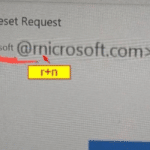PCI Compliance, short for Payment Card Industry Data Security Standard (PCI DSS), is a set of rules to keep credit card information safe.
These rules apply to any company, big or small, that handles credit card data, whether it accepts, processes, stores, or transmits it.
The PCI Security Standards Council created these standards to ensure a secure environment for all businesses worldwide, including those in the UK.
Use this detailed guide to help you better understand PCI Compliance in the UK.
Why is PCI Compliance Important?
Here are three critical reasons why it matters:
- Protecting Customer Data: The primary goal of PCI compliance is to protect cardholder data.By adhering to PCI DSS, businesses reduce the risk of data breaches, which can lead to significant financial losses and damage to their reputation.
- Avoiding Fines and Penalties: Non-compliance with PCI DSS can result in hefty fines from credit card companies and regulatory bodies.Depending on the severity of the breach and the number of compromised records, these fines can range from thousands to millions of pounds.
- Maintaining Customer Trust: Customers trust businesses to protect their personal information. Achieving PCI compliance demonstrates a commitment to data security, which can enhance customer confidence and loyalty.
The 12 PCI DSS Requirements
Businesses must meet 12 requirements established by the PCI Security Standards Council.
These requirements help organisations secure cardholder data and maintain a robust security posture. Here’s a breakdown of these 12 requirements:
- Install and Maintain a Secure Network: This involves installing and configuring a firewall to protect cardholder data and ensure it’s not exposed to unauthorised individuals.
- Do Not Use Vendor-Supplied Defaults for System Passwords and Other Security Parameters: Many breaches occur because organisations fail to change default passwords and settings on systems and devices. Businesses must ensure that all default settings are changed to enhance security.
- Protect Stored Cardholder Data: Encryption should be used to secure stored cardholder data, making it unreadable to unauthorised users. Only authorised individuals should have access to this data.
- Encrypt Transmission of Cardholder Data Across Open, Public Networks: Whenever cardholder data is transmitted across networks, it should be encrypted using strong encryption methods to prevent interception by cybercriminals.
- Use and Regularly Update Anti-Virus Software or Programs: Regularly updated anti-virus software can help detect and prevent malware that could compromise cardholder data.
- Develop and Maintain Secure Systems and Applications: Organisations should ensure that all systems and applications are kept up-to-date with the latest security patches and updates to protect against vulnerabilities.
- Restrict Access to Cardholder Data by Business Need-to-Know: Only personnel who need access to cardholder data to perform their job duties should have such access, reducing the risk of unauthorised exposure.
- Assign a Unique ID to Each Person with Computer Access: Every user should have a unique ID to track their actions and maintain accountability within the organisation.
- Restrict Physical Access to Cardholder Data: Physical security measures should be implemented to prevent unauthorised individuals from accessing cardholder data.
- Track and Monitor All Access to Network Resources and Cardholder Data: Logging mechanisms should monitor all access to network resources and cardholder data, ensuring that any unauthorised access can be quickly identified and addressed.
- Regularly Test Security Systems and Processes: Regular testing of security systems, including vulnerability scans and penetration tests, can help identify potential weaknesses before they can be exploited.
- Maintain a Policy That Addresses Information Security for All Personnel: A comprehensive information security policy should be in place to educate employees about their roles and responsibilities in protecting cardholder data.

Key Strategies for Ensuring PCI Compliance
- Conduct Regular Training: Ensure all employees understand the importance of PCI compliance and are trained on security protocols. This helps create a culture of security awareness within your organisation.
- Implement Multi-Factor Authentication (MFA): MFA adds an extra layer of security, making it harder for unauthorised users to access sensitive information.
- Stay Updated on PCI DSS Changes: The PCI Security Standards Council regularly updates the standards to address new security threats. Staying informed about these changes is crucial for maintaining compliance.
- Work with Qualified Security Assessors (QSAs): If your business handles a large volume of transactions, consider hiring a QSA to assess your compliance status and provide expert guidance.
- Use Secure Payment Gateways: Partner with PCI-compliant payment service providers to ensure secure transactions and reduce your compliance burden.
Frequently Asked Questions About PCI Compliance in the UK
Who Needs to Be PCI-Compliant?
Any business in the UK that handles credit card transactions, whether online or offline, must comply with PCI DSS.
This includes retailers, e-commerce platforms, service providers, and small businesses. Compliance requirements apply regardless of the volume of transactions processed.
How Much Does PCI Cost In The UK?
The cost of PCI compliance in the UK can vary significantly depending on several factors, including the business size, the volume of transactions processed, and the specific level of compliance required.
How Can a Business Achieve PCI Compliance?
Achieving PCI compliance involves several steps, including:
- Assessing Your Environment: Understand where and how cardholder data is processed, stored, and transmitted within your organisation.
- Implementing Security Controls: Apply the necessary security controls and technologies to protect cardholder data, such as firewalls, encryption, and regular system updates.
- Completing a Self-Assessment Questionnaire (SAQ): Depending on your level, you may need to complete a self-assessment questionnaire to demonstrate your compliance.
- Conducting Vulnerability Scans: Regularly perform vulnerability scans to identify and address potential security weaknesses.
- Obtaining an Attestation of Compliance (AOC): Submit the required documentation to validate your compliance status, often including an Attestation of Compliance (AOC).
For more detailed guidelines on achieving PCI compliance, you can visit the official PCI Security Standards Council website.
What Happens if a Business is Not PCI Compliant?
Failing to comply with PCI DSS can result in severe consequences, such as:
- Financial Penalties: Credit card companies can impose substantial fines on non-compliant businesses. For instance, penalties for Level 1 violations can reach up to £100,000 per month until compliance is achieved.
- Increased Transaction Fees: Non-compliant businesses may face higher processing fees from their acquiring banks.
- Legal Action: In cases of a data breach, affected customers may file lawsuits against the business for failing to protect their information.
- Reputational Damage: A breach can lead to a loss of customer trust and long-term damage to a brand’s reputation.
How Often Must a Business Validate PCI Compliance?
PCI compliance is not a one-time event but an ongoing process. Businesses must validate their compliance annually and perform regular security checks and updates to maintain compliance. This includes completing annual SAQs, conducting quarterly vulnerability scans, and regularly monitoring and testing security systems.
How Silver Lining Can Help You Achieve PCI Compliance
Navigating the complexities of PCI compliance can be challenging, especially for businesses without dedicated IT security teams. That’s where Silver Lining comes in. Silver Lining offers comprehensive PCI Compliance Solutions tailored to your business needs, ensuring that you meet all 12 PCI DSS requirements efficiently and effectively.
By partnering with Silver Lining, you can benefit from:
- Expert Guidance: Our team of experienced professionals will guide you through the entire PCI compliance process, from initial assessment to ongoing maintenance.
- Customised Solutions: We understand that every business is unique, which is why we provide solutions that are tailored to your specific environment and risk profile.
- Ongoing Support: PCI compliance is not a one-time task. We provide continuous support to help you maintain compliance, manage risk, and respond to evolving threats.
With Silver Lining’s PCI Compliance Solutions, you can focus on your core business activities while ensuring your customers’ data is protected.


